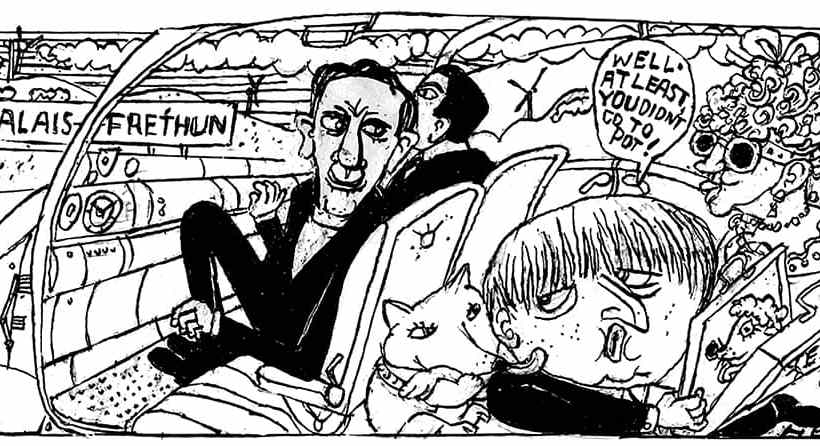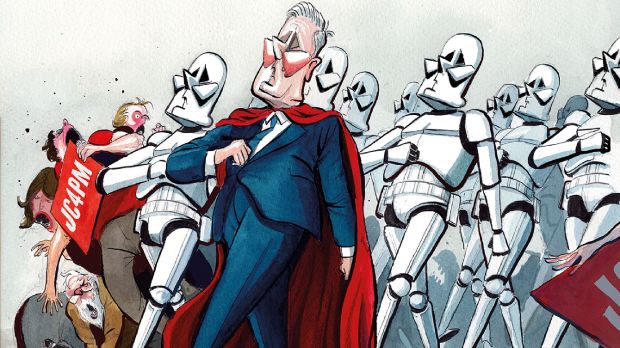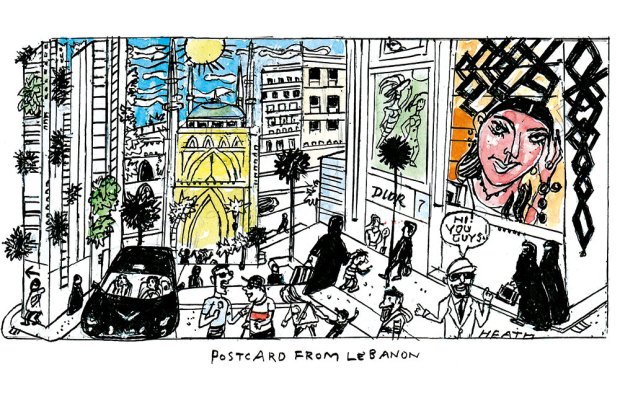Back in 1997 when I was narked on by a fellow journalist (Simon Walters, currently of the Times, then of the Express) for taking class As on the Prime Minister’s press plane, I sought to restore my reputation by giving an interview to a maverick young libertarian on the Telegraph. Boris Johnson wrote up our encounter favourably, along the classic out-of-Alexander-Pope-by-way-of-William-Rees-Mogg lines of ‘Who breaks a butterfly on a wheel?’ and ever since then I’ve found it hard to think altogether badly of him. Anyway, leaving the country last week, and with it a Tory party as self-obsessed and self-deluding as any junkie, it occurred to me it was time to return the favour: I’d like to use the pages of another of Johnson’s former bully-pulpits to invite him to grant me his first interview after he leaves office in September. I only lied about my heroin use to the editor of the Guardian (and who really cares about that?), while he lied about his partying to the entire nation, so any potentially exculpatory piece will necessarily be longer and more complex. On the other hand, I’m a rather better writer than him en mon avis du moins.
Not least of the shocks the Johnsons will face in the future is how to cross borders with their beloved Dilyn, now that he can’t go by diplomatic bag. Our own Jack Russell is rather older (indeed at 15, positively valetudinarian) and has accompanied us to France several times, but not since Brexit – and not since I got rid of the family car. How should we effect this difficult transition? Eurostar is anti-canine, and it transpires it’s impossible to take a dog on any of the ferries as a foot passenger except Newhaven to Dieppe, which would entail the poor old fellow being alone in a cage for four hours. Instead, we engaged the services of Mo, an Iraqi Kurd now resident in Folkestone, who picked us up from the station in his minivan, drove us on to the Eurotunnel rail link, then off again and to the TGV station at Calais-Fréthun. As ever, passing the miles (and then the kilometres) of razor-wire that defend Fortress Britain felt deeply uncomfortable to me. Mo, on the other hand, was so inured to the minatory sights that he snoozed his way beneath the Channel, even as some of his fellow former countrymen, women and children were probably preparing to cast off from the Calais shore and risk their lives to join him.
In Paris, the heatwave was gathering in intensity – while the storm clouds were massing over the pretty head of the President. In 2017 Larousse added the term ubérisation to its storied dictionary, defining it as ‘The challenging of an economic model by a new player offering the same services at lower prices, carried out by self-employed persons rather than employees, most often via internet reservation platforms’. At the same time – according to a mass of communiqués unearthed by the Guardian and now widely reported in the French press – Macron was using his then ministerial position to try to open up the formerly closed shop of French minicabbing. He’s now defended his actions on the grounds that for young people from the banlieues the choice is between neoliberalism and selling narcotics. An invidious one, no doubt – and an assertion which underscores the significance of another neologism: ‘to macron’, which is apparently entering Ukrainian and Russian lexicons, and means ‘to show a lot of concern and talk but do nothing’.
With the heat engendering a plague of flying-ant-sized candidates for the Tory leadership back in London, we headed counterintuitively south to Provence at 240kph in a train with twice the speed of any in Britain. There’d been warnings of buckled rails, but as Laurence Sterne so presciently observed: ‘They order these matters better in France.’ Bastille Day found us at Crillon-le-Brave, a picturesque hilltop village on the flanks of the Mont Ventoux massif, and 40 kilometres from Lacoste in the Luberon, the historic family seat of the De Sades. France’s most famous eponym was, of course, among the handful of ne’er-do-wells who were ‘liberated’ from the prison on that fateful day in 1789 – and he went on to repay the favour by becoming a revolutionary judge and arranging rendezvous for a fair few of his fellow aristos with that ultimate sadist, Madame Guillotine. The national holiday may have involved the only en marche Macron can now invoke: a massed military parade in the Champs-Élysées, but in Crillon-le-Brave (named for one of Henry IV’s generals), the Mairie was hosting an exhibition of photographs depicting the mistral wind made by my friend Rachel Cobb, whose family have a long association with the village. One of Rachel’s images, printed on silk, showed a close-up of trees so buffeted they have become port en drapeau – ‘flagpole-like’ – it made a beautifully naturalistic banner, and a counterpoint to Europe’s miserable slide into nationalism.
Got something to add? Join the discussion and comment below.
Get 10 issues for just $10
Subscribe to The Spectator Australia today for the next 10 magazine issues, plus full online access, for just $10.
You might disagree with half of it, but you’ll enjoy reading all of it. Try your first month for free, then just $2 a week for the remainder of your first year.














Comments
Don't miss out
Join the conversation with other Spectator Australia readers. Subscribe to leave a comment.
SUBSCRIBEAlready a subscriber? Log in